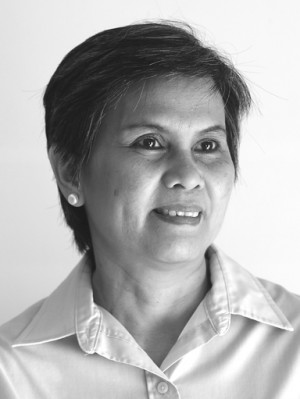
Atty. Gloria Estenzo-Ramos
At a personal level, it usually takes an ailment or a jarring event to compel us to take stock of our priorities, assess if they are being lived up to and resolve to be better. We correct, recalibrate and steer the oars to put us through the path we envision to take.
In the busy world we are in, where demands on our time have grown, it is important to take time to reevaluate if our daily choices bring us towards the direction that we want our life to be. The same is true of our membership in the community, our nation, and yes, our planet.
It is an ailing world we live in, no thanks to our consuming and high-carbon emitting lifestyles with dire consequences for humanity, especially for the future generations. It is a vastly different planet that our children will have to contend with.
Are we doing concrete steps to minimize the adverse impacts already inflicted, so that our children will have the resources to sustain their needs to live a better quality of life?
2017 and the start of the new year showed us how extreme weather conditions are engulfing our altered world. Hurricanes, wildfires and yes, droughts are becoming regular occurrences.
As in the past years, the Philippines had its share of back-to-back typhoons, with as many landfalls that hit several provinces, and deaths and destructions that followed. At the height of typhoon Agaton a few days ago, a 63-year- old woman from Malabuyoc died when rocks and muds covered her home.
Last week, the entire East Coast of the United States was covered in snow and people suffered from the biting cold. The winter storm brought icy waters, slippery streets and coastal flooding and power disruption.
In December, raging wildfires hit California’s 1 million acres and was not easily contained due to strong winds.
Scientists are saying that “as both the highest-cost fire year and the highest-cost hurricane year, 2017 was very likely “the most expensive weather year ever.” https://www.technologyreview.com/s/609642/the-year-climate-change-began-to-spin-out-of-control/
Climatologists have already warned policy makers for decades on these extreme events to be more frequent and more destructive if we do not collectively act to reduce our carbon emissions. But, did many listen? Did we listen?
Nations finally did by signing the Paris Agreement in December, 2016. All except the United States, that is, as President Trump announced his intention to withdraw from the Paris Accord.
But, signing an international commitment is nothing if we do not change how each of us relate with the natural world and yes, with each other. “We” refers not just to individuals, but to the government and private sector as well.
We appreciate our role as stewards better by understanding the four informal laws of nature. These laws of nature are as follows:
Everything is connected to everything else. We are a part of nature. What we do to nature, we do to ourselves.
Everything must go somewhere. The plastic that you throw ends up in the ocean. Bring your reusable bag.
Nature knows best. Nature provides the best solution and inspiration.
There is no such thing as a free lunch. There is a consequence for everything that we do. Overfishing destroys the capacity of our oceans to replenish itself.
There is an alarming sense of disconnect of humans from nature. This is seen by our indifference from environmental issues that we however should be very concerned at, as this relates to our survival and those of our children’s children, as well.
The manifest in the negative impacts on the environment by activity or development project, still being treated as an externality that people and community have to bear the burden later, and not the profit-motivated proponents.
As an example, reclamation projects irreversibly damage fragile marine habitats such as the corals, sea grass and mangroves. It is appalling that they are still being undertaken despite the clear displacement to fisherfolks, loss of fisheries and livelihoods, destruction of key habitats and the further exposure of communities to the dire impacts of climate change.
When will we learn to prioritize quality of life, good health and a healthy environment, in the midst of predictions that by 2050, there won’t be enough fish to sustain our growing population, and our planet will by then become a desert, if we don’t stop global warming?
The time to act is now – not tomorrow.
Disclaimer: The comments uploaded on this site do not necessarily represent or reflect the views of management and owner of Cebudailynews. We reserve the right to exclude comments that we deem to be inconsistent with our editorial standards.
